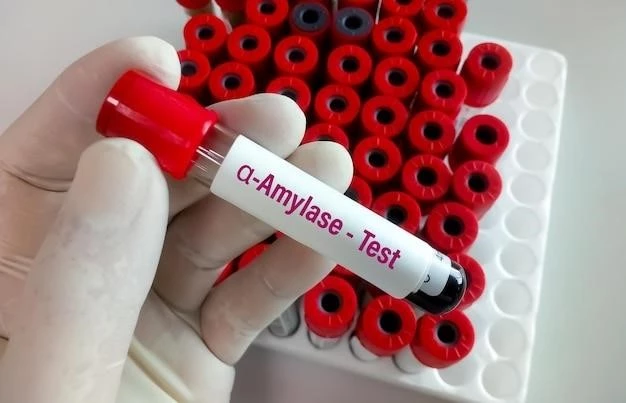Disease ─ Encephalopathy, HIV Associated
Introduction
Welcome to this detailed exploration of the disease known as Encephalopathy, specifically in its association with HIV․ Encephalopathy refers to any disease that alters brain function or structure, leading to cognitive, neurological, and behavioral abnormalities․ When the condition is linked to HIV, a virus that attacks the immune system, unique challenges arise․
This article delves into the complexities of Encephalopathy in the context of HIV infection․ By understanding the underlying mechanisms and consequences, we aim to shed light on this serious neurological condition․
Encephalopathy can involve a range of symptoms, from mild cognitive impairment to severe dementia․ When HIV is the culprit, these symptoms can be particularly challenging to manage․ The impact on the brain and nervous system can be profound, affecting not only quality of life but also overall prognosis․
Throughout this article, we will discuss the progression of the disease, treatment options such as antiretroviral therapy, and the potential complications and damage that can occur in the brain․ Our goal is to provide a comprehensive overview of HIV-associated Encephalopathy, highlighting the importance of early detection and intervention․
Understanding Encephalitis and Inflammation
Encephalitis is a condition characterized by inflammation of the brain tissue, often resulting from an infection․ When HIV is involved, the immune system’s compromised state can make the brain more susceptible to inflammation and damage․
The inflammation associated with Encephalitis can lead to a range of neurological symptoms, including confusion, seizures, and even coma in severe cases․ HIV-related Encephalitis can be particularly challenging due to the virus’s ability to infect and affect the brain directly․
One of the key factors in HIV-associated Encephalitis is the virus’s ability to cross the blood-brain barrier, gaining access to the central nervous system․ Once inside the brain, HIV can cause inflammation, disrupt neuronal function, and ultimately lead to cognitive impairment․
Chronic inflammation in the brain, often driven by HIV infection, can result in long-term damage to neural tissues․ This damage can manifest as cognitive deficits, memory problems, and other neurological complications commonly seen in HIV-positive individuals․
Understanding the role of inflammation in Encephalitis is crucial for developing effective treatment strategies․ By targeting the inflammatory processes involved in the disease, healthcare providers can potentially slow down the progression of neurological damage and improve patient outcomes․
Encephalitis, especially when linked to HIV, requires a multidisciplinary approach involving neurologists, infectious disease specialists, and other healthcare professionals․ This collaborative effort is essential for accurate diagnosis, timely intervention, and ongoing management of the condition․
HIV Infection and Neurological Symptoms
When HIV infects the body, it can have profound effects on the central nervous system, leading to a wide array of neurological symptoms․ The virus can directly impact the brain, causing cognitive impairments, motor deficits, and behavioral changes․
Neurological symptoms in HIV-infected individuals can vary widely, ranging from mild headaches and memory problems to more severe conditions such as seizures and neuropathies․ The presence of these symptoms often indicates underlying neurological complications that require prompt evaluation and management․
One of the key challenges in HIV-associated neurological symptoms is that they can be nonspecific and overlap with other conditions․ This makes diagnosis and treatment complex, requiring specialized care from healthcare providers familiar with the intricacies of HIV-related neurologic disorders․

As the virus progresses in the body, it can lead to the development of conditions like HIV-associated dementia, a severe form of cognitive impairment characterized by memory loss, confusion, and difficulty with daily activities․ Early recognition of these symptoms is crucial for initiating appropriate interventions․
Neurological symptoms in HIV-positive individuals often reflect the virus’s impact on brain function and structure․ Regular monitoring and assessment of cognitive abilities, motor skills, and mental health status are essential components of managing HIV-associated neurological complications․
By understanding the relationship between HIV infection and neurological symptoms, healthcare providers can tailor treatment plans to address the specific needs of each patient․ Therapeutic interventions may include antiretroviral therapy, cognitive rehabilitation, and supportive care to improve quality of life and functional outcomes․
Dementia and Cognitive Impairment
Dementia and cognitive impairment are significant complications of HIV-associated Encephalopathy, impacting the quality of life and independence of affected individuals․ Dementia refers to a decline in cognitive function that interferes with daily activities, while cognitive impairment involves deficits in memory, attention, and reasoning․
In the context of HIV infection, dementia can manifest as HIV-associated neurocognitive disorder (HAND), a spectrum of cognitive deficits ranging from mild to severe; These deficits can affect multiple domains of cognitive function, including memory, executive function, and motor skills․
Individuals with HIV-associated dementia may experience challenges in remembering information, making decisions, and performing tasks that require coordination․ These cognitive difficulties can significantly impact their ability to work, engage in social activities, and maintain relationships․
Cognitive impairment in HIV-positive individuals is often multifactorial, with contributions from the virus itself, the body’s inflammatory response, and other comorbid conditions․ Early detection and management of cognitive deficits are essential for preserving cognitive function and enhancing overall well-being․
Treatment strategies for dementia and cognitive impairment in HIV-associated Encephalopathy may include a combination of antiretroviral therapy, cognitive rehabilitation, and supportive services․ Antiretroviral therapy plays a critical role in reducing viral load and controlling HIV replication, which can in turn help mitigate cognitive decline․
Managing dementia and cognitive impairment requires a comprehensive approach that addresses the physical, emotional, and social aspects of the condition․ Healthcare providers, caregivers, and support networks play vital roles in assisting individuals with HIV-associated Encephalopathy in maintaining cognitive function and quality of life․
Antiretroviral Therapy for HIV-Associated Encephalopathy
Antiretroviral therapy (ART) plays a fundamental role in the management of HIV-associated Encephalopathy by targeting the human immunodeficiency virus (HIV) responsible for the condition․ These medications work by inhibiting viral replication, reducing viral load, and preserving immune function․
For individuals with HIV-associated Encephalopathy, initiating ART early is crucial to prevent further neurological damage and cognitive decline․ By suppressing viral replication in the brain and throughout the body, ART can help alleviate inflammation, protect neural tissues, and improve overall outcomes․
ART regimens typically consist of a combination of different antiretroviral medications, each targeting specific stages of the HIV life cycle․ The goal of ART is to achieve and maintain an undetectable viral load, which is associated with better neurological outcomes and a reduced risk of disease progression․
Antiretroviral therapy not only benefits individuals with HIV-associated Encephalopathy by controlling the virus but also by potentially reducing the incidence of other HIV-related complications, such as opportunistic infections and malignancies․ This comprehensive approach helps individuals maintain their cognitive function and quality of life․
While ART is highly effective in managing HIV infection and associated Encephalopathy, adherence to treatment is essential for optimal outcomes․ Skipping doses or discontinuing medication can lead to viral resistance, treatment failure, and a resurgence of neurological symptoms․
Healthcare providers play a crucial role in monitoring the effectiveness of ART, adjusting treatment regimens as needed, and addressing any side effects or complications that may arise․ Regular follow-up appointments and laboratory tests are essential components of HIV management for individuals with Encephalopathy․
Progression of HIV-Associated Neurocognitive Disorder
The progression of HIV-associated neurocognitive disorder (HAND) can be complex and variable, influenced by factors such as the stage of HIV infection, individual immune response, and adherence to treatment․ HAND encompasses a spectrum of cognitive impairments, from mild neurocognitive deficits to severe dementia․
At the mild end of the spectrum, individuals with HAND may experience subtle cognitive changes that affect their ability to concentrate, organize thoughts, and remember information․ These mild neurocognitive deficits can often be overlooked or mistaken for other conditions, underscoring the importance of regular cognitive screening in HIV-positive individuals;
As HIV infection advances and the virus continues to impact the central nervous system, neurocognitive deficits in HAND can progress to more pronounced impairments․ This progression may manifest as difficulties in language, motor coordination, and executive function, significantly impacting daily functioning and quality of life․
In some cases, untreated or inadequately managed HAND can progress to HIV-associated dementia, a severe form of cognitive impairment characterized by significant memory loss, confusion, and behavioral changes․ Individuals with HIV-associated dementia may require extensive support and care to navigate daily activities and maintain independence․
Monitoring the progression of HAND in individuals with HIV-associated Encephalopathy involves regular cognitive assessments, viral load monitoring, and imaging studies to evaluate brain structure and function․ Early detection of cognitive decline is critical for implementing timely interventions and optimizing treatment outcomes․
Multidisciplinary care teams, including neurologists, infectious disease specialists, psychiatrists, and social workers, collaborate to provide comprehensive support for individuals with HAND․ Tailored treatment plans, cognitive rehabilitation, and psychosocial interventions can help manage symptoms, enhance quality of life, and slow the progression of cognitive impairment․
Complications and Damage to the Brain
Complications and brain damage in HIV-associated Encephalopathy can have far-reaching consequences, impacting cognitive function, behavior, and overall quality of life․ The immune system’s compromised state in individuals with HIV allows the virus to directly affect the brain, leading to a range of neurological complications․
One of the primary complications of HIV-associated Encephalopathy is the development of neurological deficits that impair cognitive function․ These deficits can manifest as memory problems, attention difficulties, and changes in behavior, affecting the individual’s ability to perform daily tasks and engage in social interactions․
Chronic inflammation in the brain, driven by HIV infection, can contribute to progressive damage to neural tissues and cognitive decline․ The ongoing presence of the virus in the central nervous system can lead to the destruction of brain cells, alterations in neurotransmitter levels, and structural changes that impact brain function․
Left untreated or inadequately managed, HIV-associated Encephalopathy can result in persistent cognitive impairment, motor dysfunction, and even the development of HIV-associated dementia․ These severe neurological complications can significantly reduce quality of life and independence in affected individuals․
Brain damage in HIV-positive individuals with Encephalopathy can extend beyond cognitive deficits to include motor abnormalities, sensory disturbances, and psychiatric symptoms․ The multifaceted nature of brain damage underscores the need for comprehensive evaluation and targeted interventions to address the diverse challenges faced by affected individuals․
Managing complications and brain damage in HIV-associated Encephalopathy requires a holistic approach that considers the complex interplay between the virus, the immune system, and the central nervous system․ Effective treatments may involve a combination of antiretroviral therapy, cognitive rehabilitation, psychiatric care, and support services tailored to individual needs․
